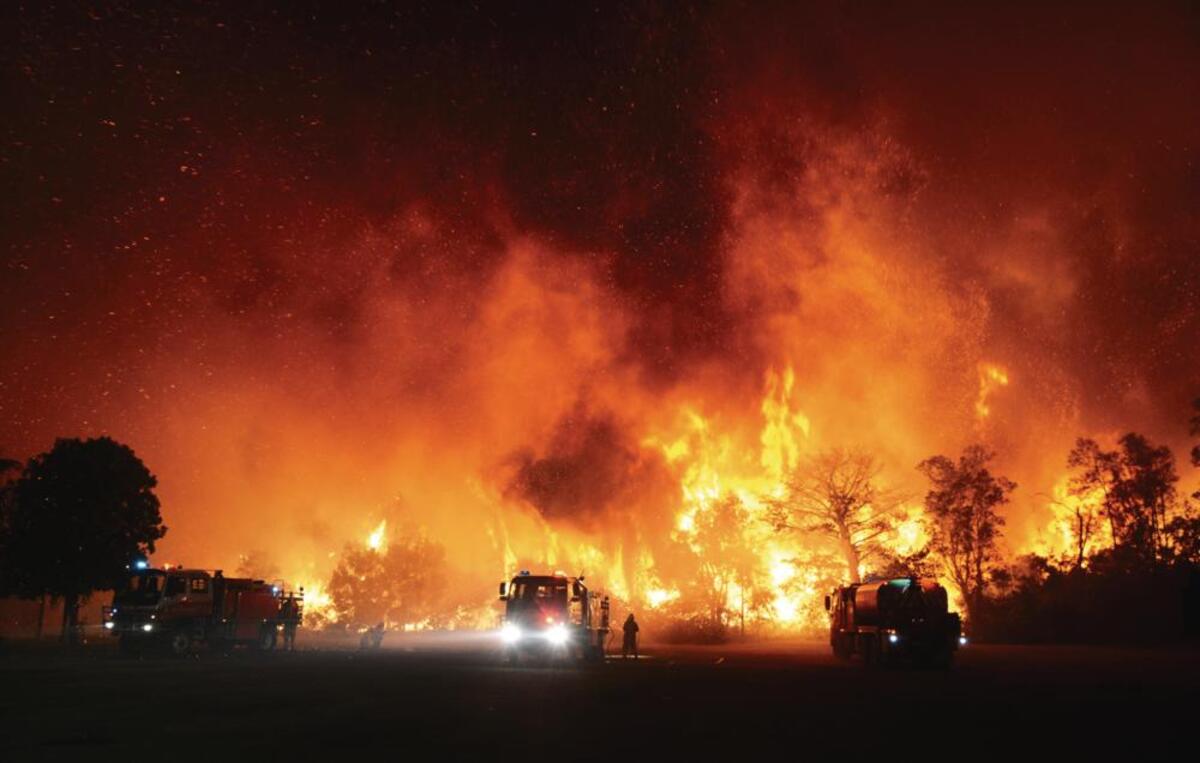Bushfire danger is upon us
Tertia Butcher
04 October 2024, 11:00 PM

The 2024 bush fire period commences on Tuesday, October 1 and now is the time to prepare your property for the fire season.
As the hot, dry weather of summer approaches across the Hay and Carrathool area, it is crucial for both rural and town residents to take immediate action to prepare their properties against the increasing risk of bushfires and grass fires. Fires can start and spread quickly, but with proper preparation, you can help protect your crops, homes, and livelihoods from potential devastation.
Here are some key steps you can take: Construct and Maintain Fire Breaks.
Fire breaks are one of the most effective measures in preventing fires from entering or escaping your land. These cleared areas, free from vegetation, act as barriers to slow or stop the spread of fire. The width of your fire breaks should be based on the density of your crops or pastures — the more fuel available for a fire, the wider the fire break needs to be.
Why it matters: Sacrificing a small portion of your crop land to create a fire break is far better than risking the loss of your entire crop or farm.
A well-constructed fire break can prevent catastrophic damage.
Prepare Your Home — Even in Town Even if you live in town, don’t assume you are immune to fire risk. Ember attacks from bushfires or grass fires can cause spot fires in urban areas, threatening homes that aren’t properly prepared.
Well-kept homes are safer homes: A green, well-maintained yard with trimmed trees and bushes can significantly reduce the chances of fire spreading to your home. � Garden maintenance: Ensure that gardens, including flower beds and shrubs, are well-watered and free of dry debris.
Well-prepared homes are not only safer but also easier to protect during a fire event.
Insurance Considerations: Taking the time to prepare your property can have financial benefits when dealing with insurance claims after a fire. Insurance companies may take the state of your property into account when processing claims, and a well-prepared home may help your case.
Fire-resistant property management: Properly maintained homes and properties could result in more favourable outcomes when making claims. Remove Combustible Materials To reduce the risk of fire spreading to your home, it’s important to remove any combustible materials from around the house.
What to remove: Firewood piles, outdoor furniture, and even potted plants on patios should be relocated to reduce fire hazards.
Embers can ignite these materials and spread fire to the home.
Ensure Firefighting Equipment is Ready: In case you need to stay and defend your property, make sure all your firefighting equipment is in good working condition. � Fire pumps and hoses: Ensure firefighting pumps are operational, hoses are in good condition, and you have adequate water supplies.
Generators: Power may be cut during a fire, so make sure generators are fuelled and ready to use.
Safety gear: Prepare appropriate protective clothing, including long-sleeved cotton shirts, jeans or long pants, work boots, and wool or cotton socks. Avoid synthetic materials, as they can melt and cause serious burns if exposed to fire. Preparing your property before the onset of summer is not just about protecting your home and crops; it’s about ensuring the safety of your family and community. Take the necessary steps now to safeguard against fire risks and reduce potential damage, both physical and financial, from fires.
By following these simple but effective tips, you can be better prepared for the fire season and protect what matters most. Why Burn Now? Starting from October 1, residents will need a fire permit to conduct any burns on their property. This change brings with it additional restrictions on what can be burnt and when.
Under these rules: No timber or pile burns will be allowed.
Fires cannot be lit before 4pm and must be fully extinguished by midnight.
What Can—and Can’t—Be Burnt: It’s important to ensure that only natural materials like timber and prunings are burnt.
Prohibited items include: Treated pine logs, plastic, tyres or other hazardous materials.
These materials not only pose environmental hazards but could also lead to fines if found burning.
Mandatory Notification: Avoiding Unnecessary Callouts One of the biggest concerns for the RFS is the increasing number of burns not notified.
It is mandatory to notify the RFS before conducting any pile burn—this applies year-round.
Failing to do so can result in fire trucks and volunteers being unnecessarily dispatched to attend a burn, often disrupting their personal lives and work.
"Volunteers are leaving their jobs, families, and meals on the table to respond to burns that should have been notified," an RFS spokesperson said.
"It's frustrating when they arrive to find that no real emergency exists."
To avoid this, the RFS asks that residents take just 60 seconds to notify them online before conducting a burn.
Not only will this prevent unnecessary callouts, but it could also save residents from embarrassment when multiple fire trucks arrive at a controlled burn site.
Moreover, failing to notify the RFS could result in a $1,100 fine.